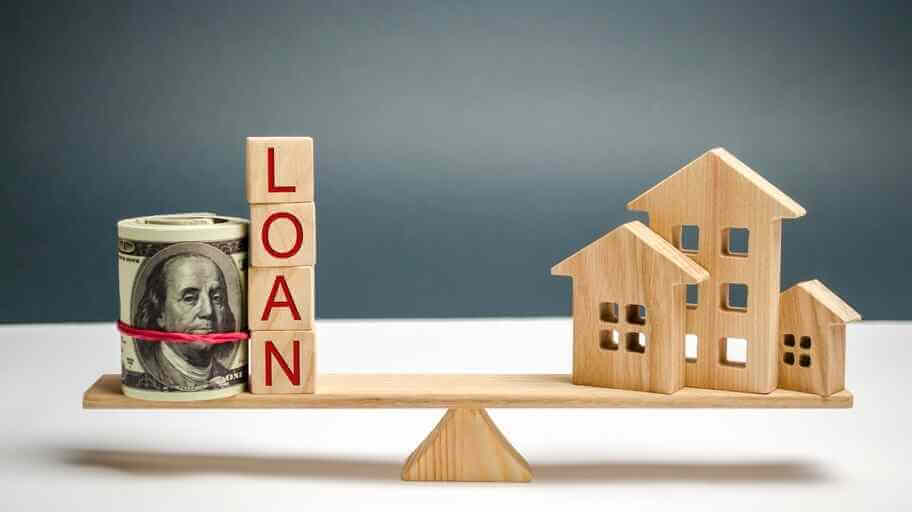Personal loans are a great option when making a big purchase or consolidating your debt. In other words, you don’t have to rely on credit cards for your next big project.
Before you take out a personal loan, you must understand what they are and how they work. This comprehensive guide will help you with understanding a personal loan!
How Do Personal Loans Work?
A personal loan refers to money borrowed for many purposes, like consolidating your debt or financing a home renovation. You will make consistent monthly payments for the duration of the loan in exchange for the amount borrowed.
Most personal loans are unsecured and do not require collateral – so you can apply quickly online. The amounts can range anywhere from $1,000 to over $50,000 depending on your needs, and the repayment period is usually one to seven years.
The interest rate on a personal loan is calculated based on your income, creditworthiness, and other applicable factors. However, this interest rate will be fixed for the entire loan term. Some lenders will also charge an origination fee, which can be up to 6% of the total loan amount.
Choosing the Best Personal Loans
When you search for personal loan offers, it can be overwhelming to choose the best one for you. With that said, there are a few factors you can look at to determine the best personal loan to apply for.
Start by calculating the loan’s APR or annual percentage rate. This will show you the total cost of borrowing, including origination fees and interest. Rates can vary from 6% to 36% APR, so you must compare your options at several lenders before you apply.
In most cases, the best personal loan is the one with the lowest APR – since it is the least expensive. Depending on your needs, it may also be helpful to consider a loan with a longer repayment term as that will lower your monthly payments. However, the sooner you can pay back your loan, the less interest you will pay overall.
Personal Loans and Your Credit Score
So, how do personal loans affect your credit score? These loans will appear on your credit report just like any other type of credit.
As you pay the loan each month, your history of on-time payments will accumulate and help build up your credit score. However, late payments are reported to the credit bureaus and can negatively affect your standing.
Your credit will also be affected when you apply for a personal loan. Each credit inquiry is considered when calculating your score, so take care to limit the number of applications you submit. Many lenders will allow you to pre-qualify, though, so you can determine if you will be approved before pulling your credit.
The credit inquiry only drops your score about five points – which the benefits of consolidating debt and building your payment history generally outweigh.
Uses for Personal Loans
You may be wondering, what can I use a personal loan for? You can use this type of credit for almost anything, including refinancing existing debt, renovating your home, paying medical bills, and more.
Here are some of the most common uses for personal loans:
Debt Consolidation
If you have loans and credit cards with high interest rates, a personal loan can help you consolidate them and reduce your payments. They can also help you pay them down faster, as more of your payment can go towards the principal.
Debt consolidation loans for blacklisted clients allow those with no other options to get the financing they need. The same goes for debt consolidation loans for veterans – it can help them secure a lower interest rate and reduce their monthly payments.
Home Improvements
Improving your home can be expensive, but personal loans can help make renovations possible. A personal loan is ideal if you don’t have enough equity in the home or want to avoid using it as collateral.
Major Events
Personal loans can also be used to finance major events, like a wedding, a honeymoon, and more. They are ideal for planning big events or traveling without having to rely on your credit cards.
Alternatives to Personal Loans
Personal loans should only be used when necessary or if they will save you money. There are cheaper alternatives, like a 0% APR credit card or a personal line of credit. However, these may require a good or excellent credit score to be approved.
Another alternative is the flexible hybrid personal loan. This option is like a personal loan, but it allows you to draw funds whenever you need. Rather than getting one lump-sum payment, you can withdraw money as many times as needed until you reach the total loan amount. You can also have more flexibility with repayment since interest will only accrue on the funds you borrow – not on the total credit line.
How to Get a Personal Loan
Getting a personal loan is simple—all you need to do is follow these easy steps:
Research Personal Loan Options
First, you must compare offers from multiple lenders to find the best rates. This will ensure you get access to the best payment terms and lowest interest rates available.
Select the Best Offer and Pre-Qualify
Once you find the best offer, get pre-qualified to ensure that you will be approved for the personal loan. This will minimize the risk that you get denied after your credit is pulled.
Can I get a personal loan with a guarantor? Yes. If you are not pre-approved, you can consider getting a personal loan with a cosigner so that you can qualify for the loan and access a better interest rate.
Submit Your Application to the Lender
After you have received your pre-qualification, you can submit the actual application to the lender. This generally requires you to submit proof of your identity, employment status, pay stubs, and more. You can typically complete this process online.
Receive Your Funds
When the lender completes the underwriting process and approves your application, the last thing left is to receive your funds. That means you can get started on your project or consolidate your debt – but remember, you will begin repayment on the loan too.
Repaying a Personal Loan
Like any other form of credit, you must repay your loan. Ensure you understand what the monthly payment will be – and how that affects your budget.
Ensuring that you can comfortably manage the monthly expense will reduce the risk of missing a payment – which will hurt your credit. Likewise, you should always be on the lookout for refinancing opportunities if you qualify for a lower rate or better terms.
Featured Image: Twenty20








